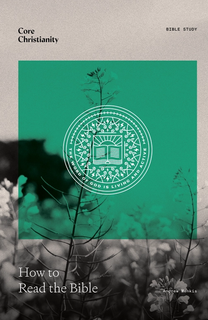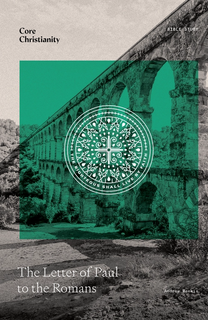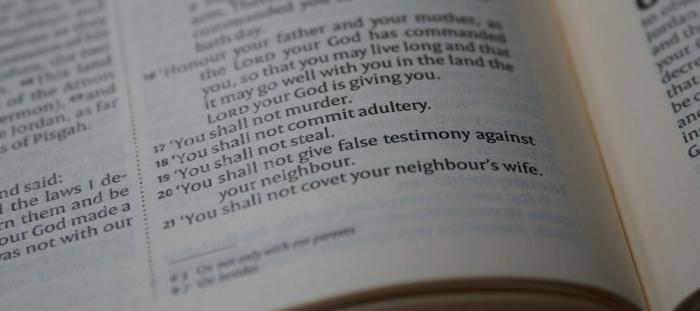The law can provoke strong feelings. On the one hand, many say they believe in a God of love, not wrath. Jesus, in this view, replaces the judgmental God of the Old Testament. Jesus’ love saves us from Moses and his law tablets.
Yet we’re deeply committed to law, at least in its earthly forms. We expect bosses, friends, and juries to treat us fairly. We want war criminals brought to trial. We identify ourselves with certain communities in part because we share their sense of justice. So, we may not want a judgmental God, but we often feel strongly about what is just.
The Bible shows us why people reject a judgmental God and yet desire justice. The Bible also shows us how the gospel frees us from the fear of judgment, so we can say to God, “Oh how I love your law!” (Ps. 119:97).
WHAT IS THE LAW?
God gave Moses the Ten Commandments at a particular moment in history. God’s law, though, existed long before that, and it’s more than a list of rules. In order to understand the law, we need to understand who God is and who we are.
God made human beings in his image. We’re meant to reflect God’s character: his righteousness, creativity, and love. We desire justice because God made us like himself.
God’s first command to Adam and Eve reflects their noble purpose: “Be fruitful and multiply and fill the earth and subdue it, and have dominion over the fish of the sea and over the birds of the heavens and over every living thing that moves on the earth” (Gen. 1:28). This wasn’t permission to greedily pillage the natural world. Rather, God called Adam and Eve to oversee and cultivate the creation, imitating God’s wisdom and goodness.
God also commanded them not to eat from the tree of the knowledge of good and evil (Gen. 2:16–17). Through obedience, humans would fulfill their purpose, living in communion with God. Disobedience would bring alienation and death. The first humans, of course, disobeyed and were sent out of the garden.
But God continues to reveal his law. We see it in creation, and it’s written on our hearts (Rom. 1:20; 2:15). This, ultimately, is why we run away from a God of judgment. We know we ought to reflect his character, but we don’t. We deserve the consequences for our injustice and want to push this knowledge out of our minds (Rom. 1:18).
SO, WHAT’S THE LAW OF MOSES?
The Ten Commandments that God gave Moses on Mount Sinai express this same unchanging moral law. Like Adam and Eve, Israel was meant to reflect God’s character and enjoy communion with him. But God’s covenant with Israel, the Old Covenant, included other aspects. Therefore, the church has often distinguished parts of the Mosaic law this way:
- The Moral Law, which Jesus later summarized in Matthew 22:37–39: “You shall love the Lord your God with all your heart and with all your soul and with all your mind,” and “You shall love your neighbor as yourself.”
- The Ceremonial Law, which governed the temple sacrifices and Israel’s worship.
- The Judicial Law, which described how Israel as a holy nation should govern itself.
The judicial and ceremonial laws ended when Christ initiated the New Covenant. The ceremonial laws pointed to the coming Messiah and the forgiveness of sins (Heb. 9). The judicial laws ended because Christ’s kingdom “is not of this world” (John 18:36). Rather than an earthly nation, God’s people now live in every nation, as “sojourners and exiles” (1 Pet. 2:11).
What does the Bible mean, then, when it says that Christians are “not under law but under grace” (Rom. 7:6)? Does it mean Christians are free from the ceremonial and judicial laws—the rules that kept Israel distinct from other nations—but not the moral law?
In other words, how does the law relate to the gospel?
If WE BELIEVE THE GOSPEL, AREN’T WE FREE FROM THE LAW?
The New Testament calls Jesus both the second Adam and the true Israel. He fulfilled the law, reflecting God’s image perfectly. On the cross, he endured the judgment of God for our sin. So the law can’t condemn us anymore. If we’re united to Christ through faith in the gospel, we’re free. We’re free from the ceremonial and judicial laws of Israel, but we’re also free from the moral law’s power to judge us.
But the moral law doesn’t disappear. God justifies us by faith alone in order to change us. The Holy Spirit renews the image of God in Christians, so that we’ll become like Christ. Through the gospel, God fulfills his purpose for us as human beings.
So now the use of the law has changed. The Bible describes three uses of the moral law:
- It reveals our sinfulness and God’s wrath against us (Rom. 1:20, 3:20, 7:7).
- It restrains evil in society through civil governments (Rom. 13:1–4).
- It guides Christians in their sanctification.
The third use of the law is “under grace.” The law still reveals God’s character and what we need to become (Rom. 7:12). But under grace, we obey now out of gratitude, not fear. As the Holy Spirit matures our character, we understand God’s law more deeply and grow in virtue. More and more, we desire to obey because we see the law’s beauty and perfection. The gospel frees us to say, “Oh how I love your law!” (Ps. 119:97).
It’s crucial, though, to guard our freedom. If we use the law to justify ourselves, we’re again “under the law,” which is slavery (Gal. 5:1). Our obedience doesn’t please God unless it flows from faith in Christ (Rom. 14:23).
THE GOD OF JUSTICE AND GRACE
The God who judges sin is the God who loves sinners. Jesus didn’t come to destroy the tablets of Moses; he came to fulfill them (Matt. 5:17–18). We desire justice because we’re made in God’s image, but sin distorts our judgments. Using the law in our Christian freedom, though, restores our vision of God’s character and will. It also empowers us to pursue our true purpose: reflecting and enjoying God.
What Does the Bible Say?
- The Moral Law: Exod. 20:1–17; Deut. 5; Matt. 22:37–39; Rom. 1:18–20, 2:15, 13:8–10
- The Ceremonial Law: Lev. 1–7; Heb. 9, 10:1
- The Judicial Law: Lev. 20:10, 24:16; Matt. 5:38
- The Law and the Gospel: Matt. 5:17–18; Rom. 7:6, 8:1–4, 14:23; Gal. 5:13–14; Heb. 11:6
Recommended Resources
- The Law of Perfect Freedom, by Michael Horton
- The Ten Commandments, by J. Douma
- A Biblical Case for Natural Law, by David VanDrunen
- The Abolition of Man, by C.S. Lewis










